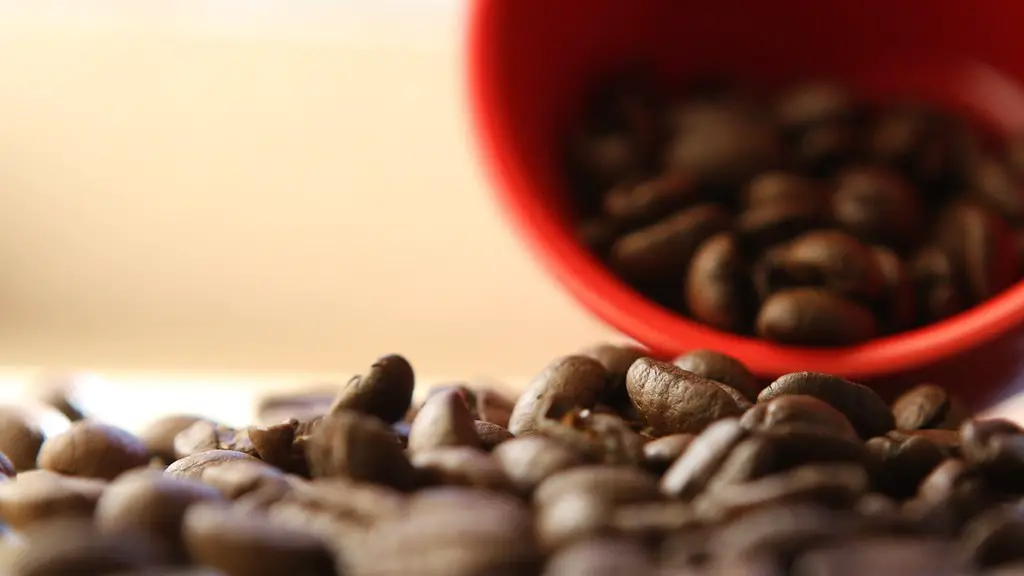Are You Allowed to Drink Coffee While Breastfeeding?
According to experts, it is considered safe for breastfeeding moms to drink coffee – as long as it’s in moderation. Although most healthcare professionals agree that consuming coffee while nursing is safe, the amount of caffeine intake might vary from mother to mother. A few studies have suggested, however, that too much caffeine can impair lactation. It is highly recommended that breastfeeding mothers abstain from drinking more than 2 cups of coffee per day.
Caffeine passes through breast milk to the baby, and could potentially have an effect on the baby’s behaviour and sleeping patterns. In some cases, babies might become irritable or fussy when exposed to higher levels of caffeine. It is therefore important to have an understanding of how your baby reacts to the caffeine in your diet. That said, some research has suggested that babies metabolize caffeine much faster than adults, so they are not exposed to high levels of caffeine for an extended period of time.
If you wish to drink coffee while breastfeeding, it might be wise to opt for decaffeinated versions and limit your intake to 1 cup per day. According to some research, decaffeinated coffee and other decaffeinated drinks do not appear to cause harmful effects on nursing babies. That said, some research suggests that caffeine consumption in the amount of more than 300 milligrams (2-3 cups) per day can reduce milk supply. If you’re concerned about your milk supply, breastfeeding experts typically advise that sticking to a daily consumption of 1 cup of caffeine is a good rule of thumb.
When it comes to caffeine consumption it’s also important to consider the different sources of caffeine in your diet. Coffee is definitely the top source of caffeine, but it is not the only source. It is present in tea, sodas, energy drinks, and even in certain foods. It is therefore necessary to check the amounts of caffeine present in the products you consume.
Aside from thinking about your baby, it is necessary to consider the effects of caffeine on your own health. Caffeine is a stimulant and in large doses, it can cause you to become anxious or irritable. Additionally, it can make it more difficult for you to sleep soundly. High intake of caffeine can also lead to dehydration. It is always important to stay hydrated after drinking coffee and to make sure you’re getting enough water.
How Much Caffeine is Too Much?
The amount of caffeine that is considered to be excessively high is different for every individual. According to one study, it is best to limit caffeine consumption to no more than 300 milligrams per day. Furthermore, the amount of caffeine tolerated by a mother and her infant depends on individual factors such as BMI, body fat percentage, and how quickly individuals metabolize caffeine.
Although most women consume more than 300 milligrams of caffeine daily, healthcare providers typically recommend that nursing mothers should limit their consumption to 200 milligrams per day, as this has been found to be safe for most mothers and infants. It is important to note, however, that some research has suggested that limiting daily consumption to only 100 milligrams may be necessary for some women to avoid overconsumption.
For mothers who are considering drinking coffee while breastfeeding, it is important to speak to their healthcare provider to determine what would be the safest amount of caffeine in their diet. Furthermore, it is important to remember that if you are concerned about your baby’s reaction to caffeine, speak to your healthcare provider or a lactation consultant who can offer tailored advice.
Alternatives to Coffee While Breastfeeding
Many women enjoy coffee because of its energizing effects. Substitutes such as decaffeinated coffee or herbal teas such as ginger and lemon tea can serve as a refreshing alternative and are generally safe for both mom and baby. While caffeine is present in many coffee and tea alternatives, the amounts are usually much lower. Some alternative beverages such as cacao-based drinks and matcha tea, for instance, contain significantly lower doses of caffeine than regular coffee, so these beverages can be made a part of a healthy diet for both mom and baby.
Yerba mate is another herbal beverage alternative that’s made from a dried, ground version of the leaf of the Ilex paraguariensis plant. It’s both energizing and high in antioxidants. Matcha, another popular beverage alternative, is made from finely ground green tea leaves, and is also known to be rich in antioxidants and provide natural energizing effects. Additionally, some alternative beverages can be served cold if the temperatures are too hot for iced coffee, or if the tastes of hot coffee is not so preferred.
For those looking for an additional energy boost without caffeine or sugary drinks, there are also some natural energy bars or snacks that can help provide you with a boost. Whole-food snacks such as nuts, fruits, and vegetables are also a great way to get your energy fix and provide your body with the nutrients it needs.
The Role of Diet and Exercise in Breastfeeding
It is important for all breastfeeding mothers to be aware of their diet to ensure their infant’s health. An adequate diet is essential for both mom and baby; however, there is no “one-size-fits-all” diet for nursing mothers. Furthermore, exercising regularly is also important, as it helps promote a healthy lifestyle and helps promote better sleep habits. Additionally, it helps mothers with physical and mental wellbeing.
To increase your energy levels and ensure proper nutrition, make sure to include a variety of whole grains, fruits, and vegetables in your diet. Healthy fats are also beneficial, as they are essential for a baby’s growth and development. Dairy products, lean proteins, and whole-food snacks are also essential for both mom and baby.
Many moms might not have the time or energy to prepare healthy meals every day. Meal delivery services are a great solution for healthy, nutrient-rich meals without having to commit a lot of time in the kitchen. Additionally, there are a variety of breastfeeding supplements or snacks designed to offer the necessary amount of vitamins and minerals for mom and baby. These can be an easy and convenient way to get the nutrition needed for breastfeeding.
The Takeaway
As with any dietary changes, it is important to take into consideration the potential impacts of your daily food intake. Caffeine consumption while breastfeeding is generally considered safe as long as it’s in moderation. More specifically, experts typically recommend that nursing mothers should limit their caffeine consumption to 200 to 300 milligrams per day. Although lower amounts are recommended for nursing mothers, the amount of caffeine tolerated depends on individual factors.
It is also important to have an understanding of your body and the effects of any dietary changes you make on your health and your baby. Association between your diet and your baby’s behaviour can be difficult to detect, and it is therefore important to consult a healthcare provider or lactation specialist for tailored advice. Additionally, consider alternatives to coffee such as decaffeinated beverages, herbal teas, or Energy bars for an energy boost without caffeine or sugar.




